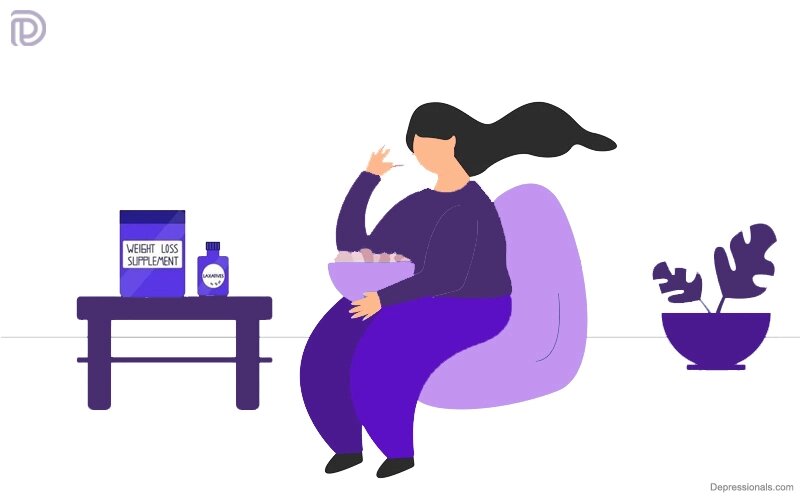A Quick Guide
Bulimia Nervosa is an eating disorder characterized by binge eating and purging. It can have severe health complications and is treated through a combination of psychotherapy, medication, and nutritional counseling. Diagnosis involves a comprehensive evaluation by a mental health professional, and treatment often involves a team approach with involvement from various healthcare professionals.
Bulimia Nervosa
Bulimia Nervosa also commonly known as Bulimia is an eating disorder. It is characterized by recurrent episodes of binge eating and purging. You may become stuck in this cycle. It can have serious health complications and at times can prove to be fatal. Moreover, you may experience various physical, psychological, and behavioral issues due to this disorder. The treatment for bulimia nervosa includes medication and psychotherapy.
Diagnosis
Usually, a mental health professional can diagnose this condition. They may do the following:
- Check the criteria from the Diagnostic and Statistical Manual of Mental Disorders (DSM-5)
- Get your blood and urine tests done
- Have you take an electrocardiogram test to check your heart
- Learn more about your eating and weight loss methods along with any physical symptoms you may have
- Perform a physical exam
- Perform a psychological evaluation
If you feel confused and think that your symptoms may not warrant clinical attention or if you have any doubts. You can read more about the symptoms of bulimia here. Or better yet you can try taking an online test first. Just so you have a bit more clarity as to whether you should schedule an appointment with a mental health professional or not.
Here are a few tests you can make use of:
- Psycom: This is an easy-to-use tool. There are a total of 16 questions you have to attempt. They may hardly take up to 5 minutes and you get your results instantaneously.
- IDRlabs: This test only contains 10 questions and may take you 3 minutes to complete. You will immediately get your results as well.
It is important to keep in mind that these tests are not diagnostic tools. If there is an indication of bulimia. You should immediately consult a mental health professional who can then help you get started on your treatment.
Treatment
The treatment options for bulimia include psychotherapy, medication, nutritional counseling, etc. Though it is more effective if all these approaches are combined. Moreover, the treatment often takes a team approach where a mental health professional, a certified dietician, your primary care provider, and your family are involved.
If the case is too severe, there may be a need for hospitalization.
Psychotherapy
Psychotherapy can prove to be quite beneficial when it comes to treating bulimia. Some types of commonly used therapies are as follows:
Cognitive Behavioral Therapy CBT
It can help you by regulating your eating patterns. Initially, it will help you overcome your negative self-image and change your faulty thinking pattern or beliefs with the correct ones.
Family Therapy
This works best mostly in the case of children and teenagers suffering from bulimia nervosa. Parents are educated to intervene with their children’s unhealthy eating habits. Moreover, it can also help the child overcome their loss of control over their eating.
Medication
The most common medication used for the treatment of bulimia is Fluoxetine (Prozac). It is a type of Selective Serotonin Reuptake Inhibitor SSRI. This drug has been specifically approved by the Food and Drug Administration. Your doctor may prescribe this drug even if you are not depressed as it has proved to be quite effective.
Nutritional Therapy
Your dietician can make a diet plan specifically catered to your needs. This way you can avoid cravings, starving yourself, and nutritional deficiencies. Eating a balanced diet goes a long way in helping to treat bulimia.
Watch: [Bulimia Nervosa Treatment]
We hope you found this article useful in understanding more about the diagnosis and treatment of bulimia nervosa along with some tests to check if you are in need of an appointment with a mental health professional.



 Healing Your Inner Child: A Short Guide
Healing Your Inner Child: A Short Guide  What You Need to Know About Trauma & its effects
What You Need to Know About Trauma & its effects  Dealing with a Narcissistic Parent: Strategies and Support
Dealing with a Narcissistic Parent: Strategies and Support  Understanding the MBTI Personality Types
Understanding the MBTI Personality Types  Understanding the Big Five Personality Traits
Understanding the Big Five Personality Traits  Body Image: what it entails and how it affects you
Body Image: what it entails and how it affects you